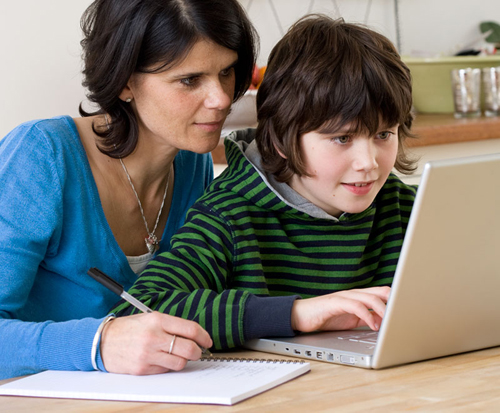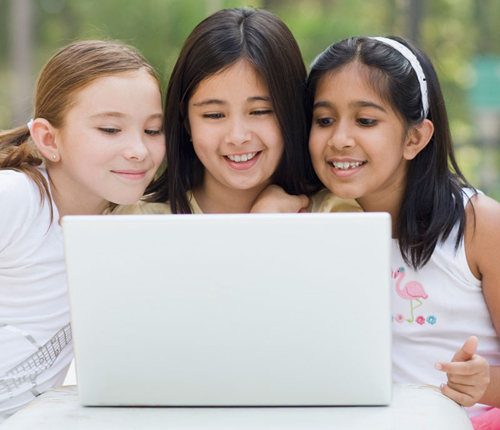The internet Advantages and disadvantages
Almost all children ages
eight to 17 use the internet. Now is your opportunity to influence your
child’s online behavior while he is young and likely to comply. This
gives you an opportunity to get things right in preparation for years of
internet use, so that you can maximize the benefits and reduce and
manage the risks.
Risks
There are four
main categories of risk: What your child might find on the internet; who
he will meet; how he and others behave; and, finally, how he
understands what he encounters. When it comes to the content found on
the internet there is no doubt that this technology has increased the
likelihood that children will come across sexually explicit material.
The impact of what he sees may be influenced by your child’s background,
age, cognitive, social, and physical development. However, there is
growing evidence that pornography can have a very negative impact on
children, ranging from distress to the development of distorted belief
systems.
In order to prevent this
from happening in your home, you can put parental controls in place
that block unsuitable material. It is worth checking that similar
controls are in place on computers at his friends’ homes. Most parents
will be relieved to know that you are just as concerned and proactive as
they are. Should precautions fail and your child stumbles across
sexually explicit material, he may react in a range of ways, from shock,
to curiosity, to amusement or disgust. It is worth having a general
conversation about unsuitable images and offering advice and support
that suits your child’s personality and temperament—reassuring to one
who might be upset by such things, calming and serious to another who
might be excited and titillated by such lewdness. You as a parent will
have to judge your tone and emphasis and guard against making a big deal
that may encourage the seeking out of such images.
Risk management
Sitting with your child while he browses allows you to control what he accesses online.

Cyberbullying
This has all the damaging
features of offline bullying, but with the extra elements of anonymity
and the invasiveness of the internet into the safe haven of home. Part
of the malevolent power of cyberbullies is their ability to distort and
abuse personal information. This represents one element of a greater
risk associated with posting personal information on the internet.
Although you may have
told your child not to give out details about himself, he may not
hesitate when communicating on a social-networking site with someone he
believes to be a friend. In a large survey of 8–17-year-olds, nearly
half admitted to giving out personal information to people they meet on
the internet. If verbal reminders from you get overlooked, it might be
worth assigning your son the task of making a big, bright sign above the
computer to remind himself and his siblings NEVER to give out personal
details, with all the gruesome visual imagery he can muster.
Another considerable risk
to young children is the opportunity that the internet affords for
commercial advertising and potential exploitation. Side by side, sitting
at the computer, you can help him cast a critical eye over what is
really available, and the need for caution and a bit more research
before purchasing things online. It is also worth quoting real-life
examples from friends and family of being ripped off.
Enormous potential benefits
The internet
offers wonderful opportunities for learning and developing cognitive
skills via fun, interactive sites that engage children in ways that
formal education cannot always do. For children who are struggling to
engage in school, this can be a lifeline. Online communities represent
all manner of interests, affording children the opportunity to
participate in ways not available to them offline. In particular, the
global nature of the internet can connect children across the world in
social, cultural, ecological, political, and ethnic groups.
Networks
One of the great benefits of the internet is that it connects people across the world.
